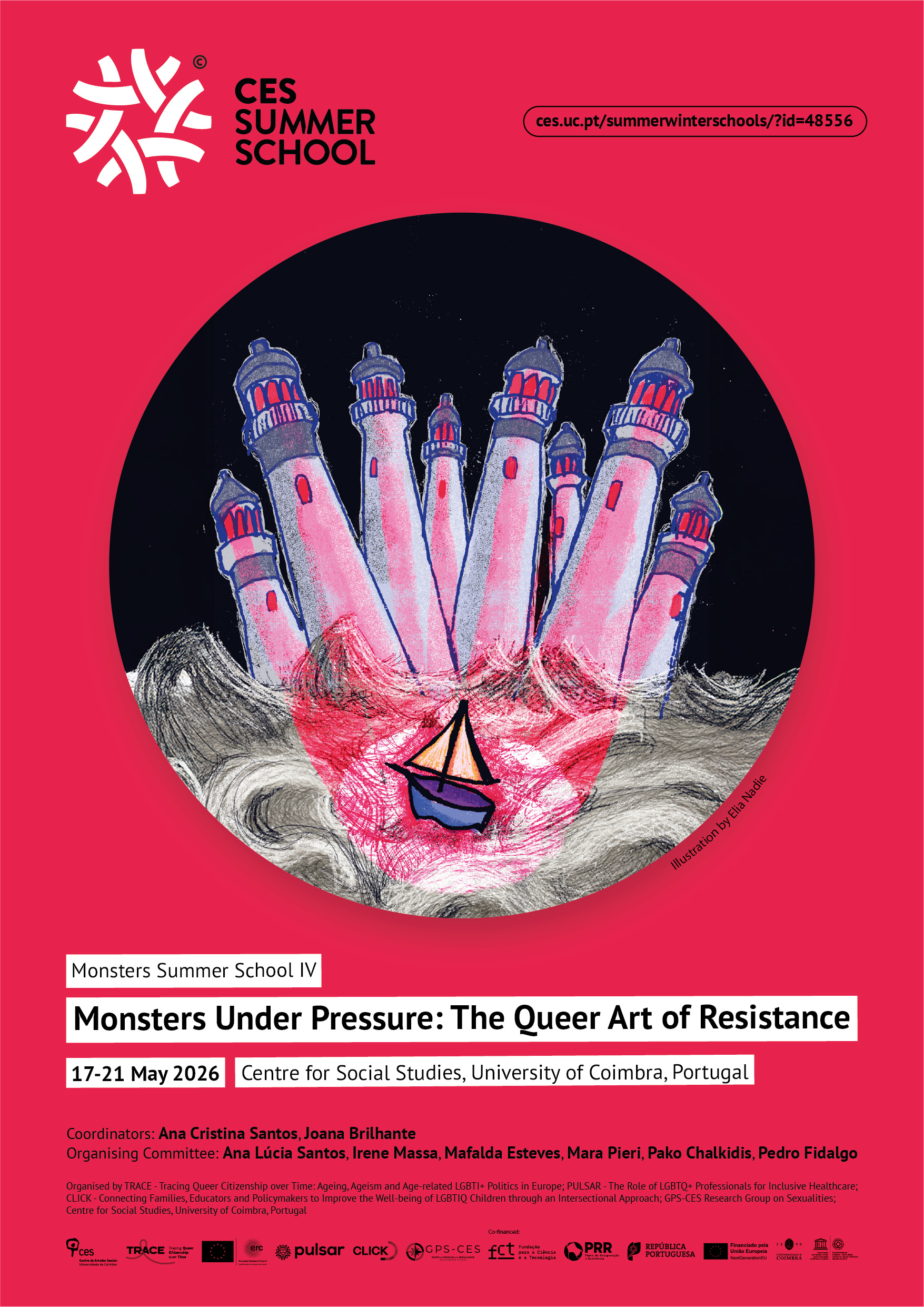“The monster is always subjected to an intense process of coding and recoding
gender, sexual, and racial norms governing the social intelligibility of the body.
This is what makes it a key figure not only for literary or film criticism,
but for cultural critique, sociology, political philosophy,
and even international relations."
(Navarro, et al., 2024: 9)
The figure of the monster has long been used to represent danger, abnormality, and sin - an apotheosis of what must be excluded in order to preserve a so-called civilised order. Monsters were imagined as omens of catastrophe, their arrival signalling disorder too profound to explain through reason alone. But what if we no longer feared the monster? What if, instead, we reclaimed monstrosity as a space of radical belonging?
As history has shown through the gradual expansion of citizenship and human rights, those once classified as monsters - or cast as society’s “others” - were, in fact, marginalised human beings. What was feared as abnormality was often simply difference, misread through the lens of hetero-cisnormative, ableist, neoliberal capitalist or colonial/racist power and respective exclusions. To reclaim monstrosity as a site of critique is to resist the logic of dehumanisation. It is to insist that no one can be cast outside the bounds of empathy, rights, or recognition. In reclaiming monstrosity, we embrace an ethics of human solidarity - a moral stance that defies the indifference, social atomisation, and dehumanising politics that increasingly shape life and politics in contemporary societies.
The IV Monsters Summer School invites participants to think with and through monstrosity - not as a metaphor for destruction, but as a site of possibility. Departing from the idea that to be monstrous is to live on the margins of normativity, to defy boundaries between normal and abnormal, human and nonhuman, good and bad. Yet in these spaces off the limits of the “normal”, we propose we might find the potential for new forms of solidarity, community and belonging.
Structure of the Summer School
The IV MSS will be structured around three timely and interconnected topics: queer challenges, methods and resistance. In a time of alarming reactionary gender politics and conservative anti-queer attacks, these themes will invite critical thinking and create space for collective reflection. By calling attention to the contemporary attacks on freedom (e.g. academic freedom); by learning how queer methodologies can help us challenge the normative productions of knowledge opening space for more inclusive research practices; and by creating a safe space where we can (re)load the batteries for building resistance, the Monsters Summer School is a space for political imagination and transformative action.
It will offer a dynamic programme, including fantastic keynote lecturers, group discussions and hands-on workshops. All sessions will be conducted in English. Throughout our monstrous week, participants will also have the opportunity to participate in one of the oldest Portugal Pride Marches, Coimbra´s 17th Anti-Homophobia and Transphobia March and engage in cultural events related to the school’s themes.
Confirmed Speakers
Ana Cristina Santos - Centre for Social Studies (Portugal)
David Paternotte - Université Libre de Bruxelles (Belgium)
Judith Takács - HUN-REN Centre for Social Sciences (Hungary)
Luísa Semedo - Sorbonne Université (France) & Universidade de Lisboa (Portugal)
Maggie O’Neill - University College Cork (Ireland)
Miguel Cardina - Centre for Social Studies (Portugal)
Fees
Early bird (registration until 5 January 2026): 250€
Regular (registration from 5 January 2026): 300€
University of Coimbra PhD students: 100€ (limited to 3 places)
The fee covers tuition, course materials, coffee breaks, and lunches throughout the Summer School.
Please note: accommodation and dinners are not included and should be arranged by participants independently.
Location
Centre for Social Studies (Alta), University of Coimbra.
The space is easily reached by public transport, and the seminar rooms are fully accessible.
Eligibility
Applicants should be PhD students in the fields of Social Sciences or Humanities, interested in exploring the issues of gender, LGBTQI+, queer, disability/crip, ageing and related areas. Holders of an academic, scientific, professional, activist and/or artistic curriculum that is recognised as relevant to the program by the Organising Committee are also eligible. Topics of interest include:
- Archives
- Queer Ageing, ageism and age-related topics
- Crip and/or disability studies
- Critical (in)human rights
- Decolonial and postcolonial studies
- LGBTQ+ healthcare: strategies, interventions and experiences
- LGBTQ+ refugees and asylum seekers
- Queer families
- Queer Life courses
- Monstrous embodiments
- Queer geographies
- Post-humanism and transhumanism
- Trans, intersex and non-binary lives
- Queer methods
- Queer challenges
- Queer resistance
- LGBTQ+ History
- Memory studies
To apply, you need to submit:
a) An abstract about your PhD topic (400 words max). To be circulated in advance amongst selected participants.
b) A biographical note (250 words max). To be circulated in advance amongst selected participants.
c) A motivation letter answering the following questions (700 words max):
- Why would you like to be part of this Summer School in particular?
- How does it fit your interests, how do you think it would enrich your knowledge, and how could you contribute to the group discussion?
Submit your application HERE
Important Dates
Deadline for submitting your application: November 30st
Selection of Candidates: December 10th
Early Bird Registration and Payment: January 5th 2026
Late registration and payment: February 28th 2026
Monsters Summer School: from of May 17th to the 21st, 2026
Organising Committee
Ana Cristina Santos and Joana Brilhante (Coord.), Ana Lúcia Santos, Irene Massa, Mafalda Esteves, Mara Pieri, Pako Chalkidis and Pedro Fidalgo
Organised by:
TRACE -Tracing Queer Citizenship over Time: Ageing, ageism and age-related LGBTI+ politics in Europe
PULSAR: O papel de profissionais LGBTQ+ para uma saúde inclusiva
CLICK - Connecting Families, Educators and Policymakers to Improve the Well-being of LGBTIQ Children through an Intersectional Approach
GPS- Research Group in Sexualities
___________


